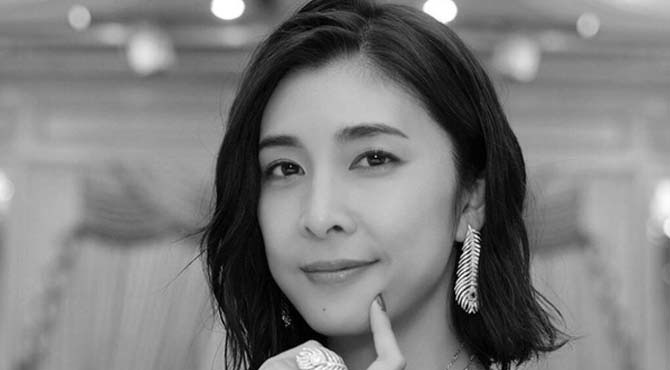
The death of Japanese actress Takeuchi Yuko by an apparent suicide on Sunday has prompted an outpouring of grief and reflection from both ordinary fans and industry insiders.

Age 40 at the time of her death, Takeuchi had been the top of her profession for two decades, appearing in a steady stream of films, TV dramas and, that all-important barometer of popularity in the local entertainment world, TV commercials. The latest in a procession of prominent Japanese talents to take their own lives, including actor Miura Haruma and actress Ashina Sei, Takeuchi was arguably the biggest name and her death is causing the biggest shock waves.
After rising to stardom in the 1999 NHK morning drama “Asuka” as a teenager, Takeuchi stayed in high demand, with her sunny smile and glowing face seen on everything from film posters and magazine covers to beer ads. “I’m truly shocked,” said one commentator on a TV Asahi news story. “I loved her beautiful appearance and absorbing performances; she was the very image of a Yamato Nadeshiko (a term for a woman who embodies the traditional virtues of Japanese femininity).

This image, as industry reporters and colleagues testify in online comments, was no façade. Takeuchi was both a thorough professional, who came to the set ready to nail the knottiest lines on the first take, and a caring individual. “She was called the ‘Queen of snacks’ by the crew,” a journalist for the Sports Nippon tabloid wrote. “She would bring foods like hard-to-get treats and seasonal dishes and tell everyone to ‘eat up.’ She was very considerate to the staff.”
Also, by all accounts Takeuchi was happy in her second marriage to fellow actor Nakabayashi Taiki, age 35, who discovered her body in their Tokyo apartment early Sunday morning. In addition to a teenage son from a previous marriage, Takeuchi had an infant son born in January.
In an interview for the October issues of Lee, a monthly women’s magazine, Takeuchi said “Now that I’m in my forties I have no desire to look back. Instead it’s as though all kinds of weights have dropped from my shoulders – I feel lighter.” Asked about how she felt about spending more time with her family due to the pandemic, she replied “Having a lot of face time with my family makes me feel that it’s OK to value my own life a little more. In my forties, I want to enjoy time with my family, while having this axis called work.”
This does not answer the question of why a loved, respected, successful and seemingly grounded person like Takeuchi would take her own life. Nakabayashi told the press, “I can’t think of any reason why she would do this – she seemed to be the same as always.”
Online commenters have mentioned post-partum depression, the pressures of Japanese show business and the lack of mental health support in Japan as possible contributing factors to Takeuchi’s suicide. “Japan is cold in the way it thinks about the mentally ill,” wrote one TV Asahi news site commenter. “In terms of spiritual happiness, Japan ranks extremely low in comparison with the rest of the world,” noted another.
None of the above factors have as yet been confirmed by any investigation, however. Takeuchi left no suicide note. And the mystery remains.
On a TBS Sunday program, known as a wide show, veteran comedian Hikari Ota told his national audience: “Everyone has the same worries, be they famous people from the past or great philosophers. Don’t think you’re the only one with worries – spit them out, get help. You’re not alone.”
On such wide shows, infotainment programs focused on celebrity scandal and gossip, serious talk about mental health is about as common as unicorns. This was a sign that, after a series of tragic deaths, attitudes toward a previously taboo subject may be changing. For the next victim, famous or no, change can’t come too soon.
